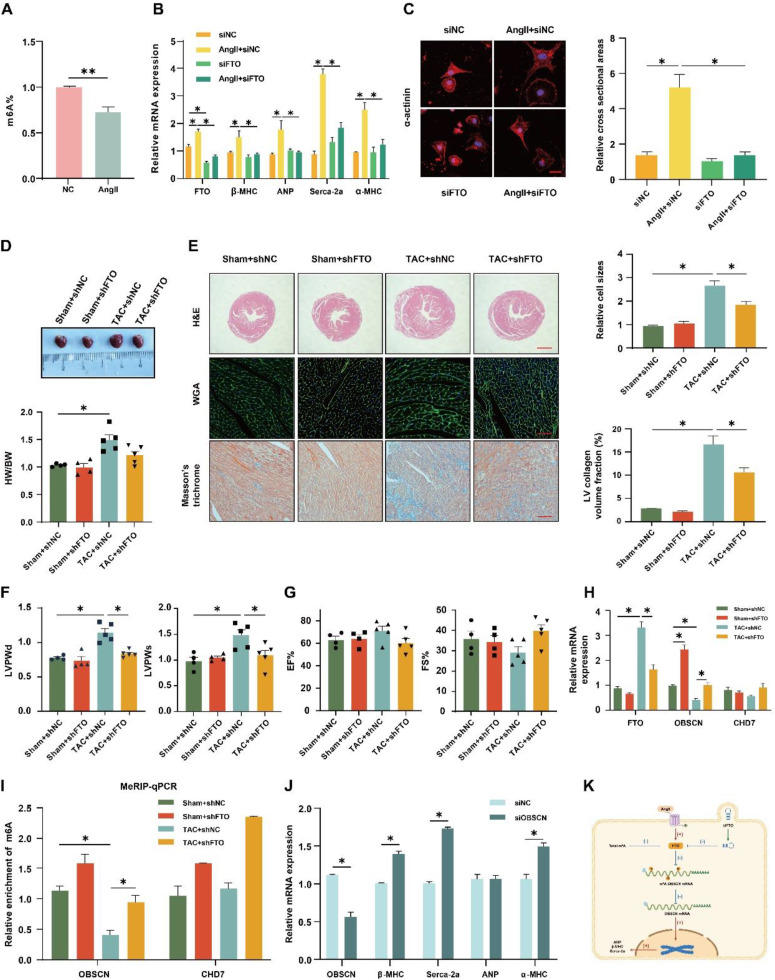
Effect of FTO on cardiac hypertrophy through the regulation of OBSCN expression


N6-methyladenosine (m6A) RNA methylation exerts significant functions in regulating various cardiovascular diseases. Following the recognition of the first m6A demethylase, namely fat and obesity-associated protein (FTO), mounting evidence has shown that polymorphism of the FTO gene leads to an increased occurrence of cardiovascular-related risk factors including obesity, diabetes, and inflammation.1 As shown previously, FTO is directly involved in the physiological processes of hypertension, ischemic cardiomyopathy, and heart failure, and it could be a pathogenic factor and potential therapeutic target for various cardiovascular diseases.2 It is experimentally confirmed that m6A deficiency leads to abnormal cardiac function in mice; m6A-deficient mice are more inclined to develop cardiac dysfunction stimulated by serum-induced myocardial hypertrophy.3 Therefore, m6A modification is required to maintain cardiac homeostasis. FTO ameliorates ischemia-induced cardiac systolic dysfunction, which is induced by the demethylating effect of FTO, leading to an inhibition of degrading cardiac contractile transcripts and an enhanced expression of transcripts in the ischemic state.4 These researches showed that FTO might be pivotal in various cardiovascular diseases, particularly in cardiac hypertrophy, by demethylation. However, the specific mechanism of action remains unelucidated. Here, we investigated whether FTO regulates cardiac hypertrophy and the underlying mechanism of its regulatory effect.
